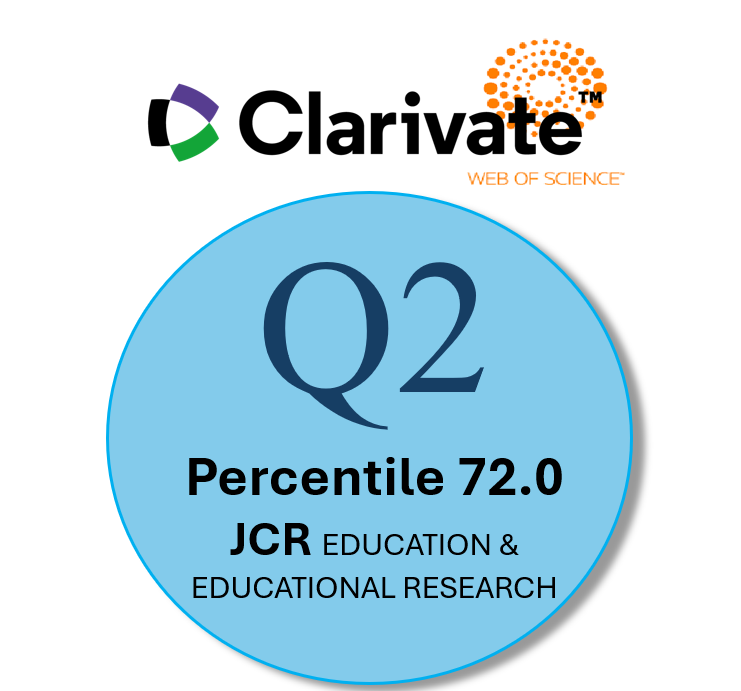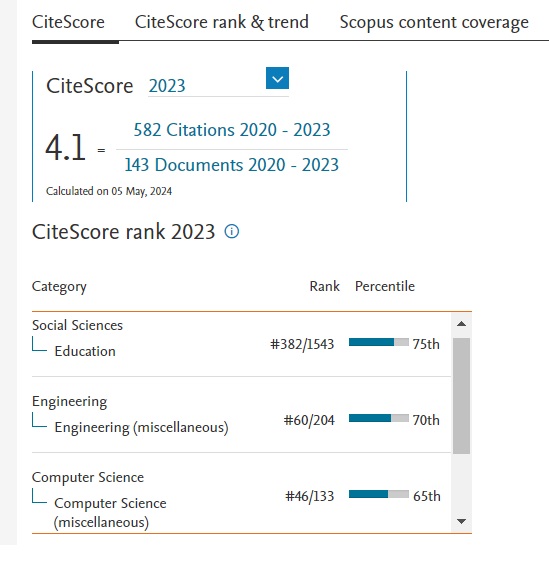Creación audiovisual y TIC: programa de intervención educativa en el marco del diálogo intercultural
Resumen
Este trabajo describe la experiencia llevada a cabo en un centro de Educación Primaria de Tenerife que cuenta con un elevado número de alumnado procedente de diferentes países. La selección de un grupo de estudiantes conformó la base de un estudio de caso que surgió para dar respuesta a un mensaje audiovisual emitido por un centro educativo de Brasil. Su participación en un programa de intervención educativa ad hoc, dirigido al desarrollo de habilidades relacionadas con la vídeocreación y las TIC, culminó con el diseño y elaboración, de forma colaborativa, de una vídeocarta, acometiendo las tareas de guión, realización y edición. El envío de este producto a su alter ego cerró el ciclo de participación y comunicación intercultural. El procedimiento metodológico aunó técnicas cuantitativas y cualitativas. Entre otros resultados relevantes, se confirmó el aumento del pensamiento creativo en el que se centra esta presentación. Los alumnos y las alumnas demostraron ser capaces de reinventar tanto ideas como sentimientos propios y ajenos, enriqueciéndose a través de las distintas realidades que supieron comunicar audiovisualmente haciendo uso didáctico de las TIC.Descargas
-
Resumen716
-
PDF412
Las obras que se publican en esta revista están sujetas a los siguientes términos:
1. El Servicio de Publicaciones de la Universidad de Murcia (la editorial) conserva los derechos patrimoniales (copyright) de las obras publicadas, y favorece y permite la reutilización de las mismas bajo la licencia de uso indicada en el punto 2.
2. Las obras se publican en la edición electrónica de la revista bajo una licencia Creative Commons Reconocimiento-NoComercial-SinObraDerivada 3.0 España (texto legal). Se pueden copiar, usar, difundir, transmitir y exponer públicamente, siempre que: i) se cite la autoría y la fuente original de su publicación (revista, editorial y URL de la obra); ii) no se usen para fines comerciales; iii) se mencione la existencia y especificaciones de esta licencia de uso.
3. Condiciones de auto-archivo. Se permite y se anima a los autores a difundir electrónicamente las versiones pre-print (versión antes de ser evaluada) y/o post-print (versión evaluada y aceptada para su publicación) de sus obras antes de su publicación, ya que favorece su circulación y difusión más temprana y con ello un posible aumento en su citación y alcance entre la comunidad académica. Color RoMEO: verde.














